(April 16, 2024) After graduating from Boston University in 2022, Neeharika Munjal wanted to diversify her network and make connections within the Indian community in New England, USA, where she had landed a job. However, she couldn’t find a way to do this, as there was no organisation or platform dedicated to it. It gave Neeharika the idea for YIPNE, short for Young Indian Professionals of New England – a collaborative platform dedicated to professionals of Indian origin who live in the New England area helping them build connections through networking opportunities. Neeharika serves as the founder and CEO of the voluntary organisation, which has grown significantly in just two years of its inception, much to her delight.
Basking in happiness of seeing it turn two, the 24-year-old shares her dreams with Global Indian. “I would love to see YIPNE to expand nationwide so we can create a stronger South Asian and Indian professional network in the United States. We have so many CEOs who are Indian here so it would be great to have them all in board and have many more young Indian professionals support each other and get inspired,” she says adding, “Since we have a massive Indian population in the United States it would be great to see them all unite into one community and celebrate each other’s professional success.”
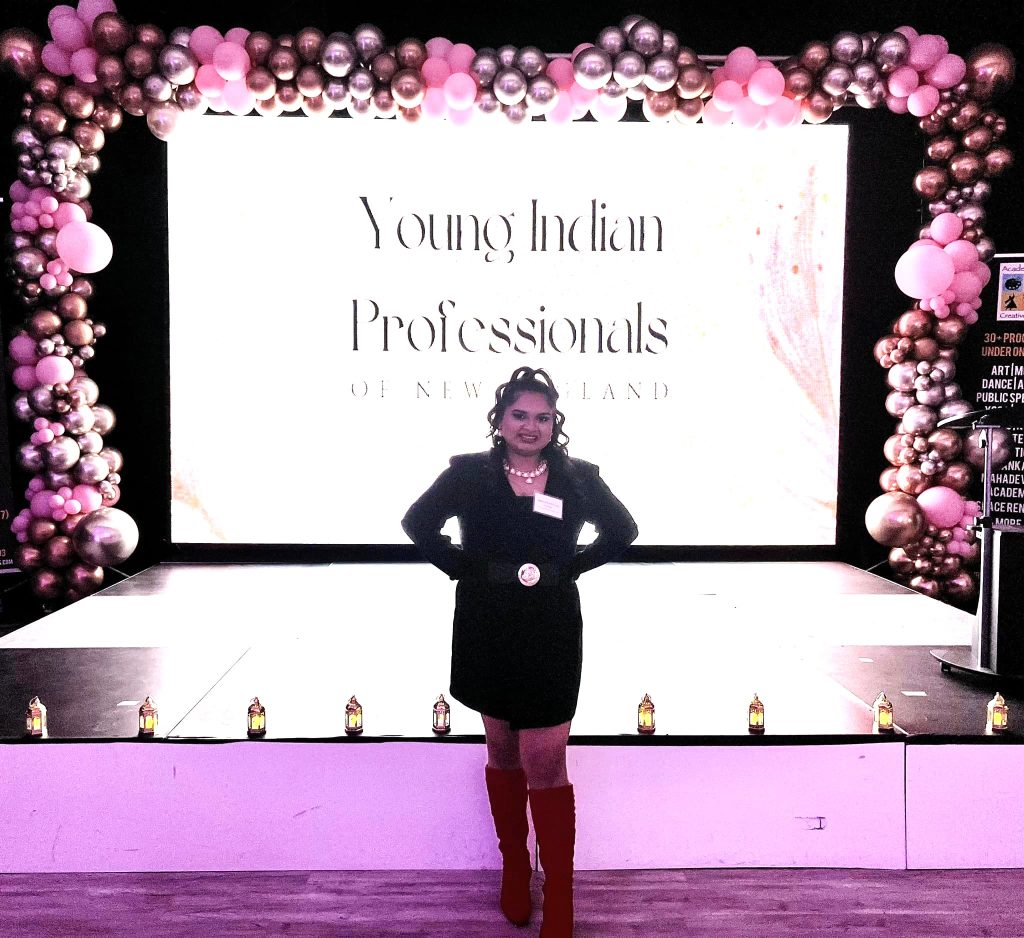
Neeharika Munjal
Neeharika Munjal works as an administrative supervisor at Encompass Health Rehabilitation Hospital of New England. The Boston University alumni is driven by two passions in life – working to enhance healthcare systems to ensure optimal and affordable treatment for all and promoting South Asian culture in the Western world.
YIPNE – quickly gaining recognition
Since its inception in April 2022, the voluntary group has seen immense growth, boasting over 6,000 members across Instagram, LinkedIn, Facebook, and WhatsApp. Its initiatives have included a highly-attended networking event, drawing over 400 young Indian professionals in the New England area, and the launch of a YouTube talk series spotlighting community groups and individual success stories. It has also established a board of advisors comprising esteemed individuals from the Boston Indian community. “The team includes Dipali Trivedi, Yogita Miharia, Sanjay Kudrimoti, Dr Raju Singla, Dr. Rohit Chandra, Kamal Tiku, Dr. Chander Kapasi, Ranjani Saigal and Gaurav Jetly,” Neeharika shares.
Additionally, YIPNE has successfully organised small meetups that consistently sell out. The most recent one was the Holi networking brunch. Another initiative that YIPNE launched is the “South Asian Small Business Saturday” which has been showcasing and supporting Indian-owned small businesses in New England, promoting their visibility and growth.
“Being able to emcee multiple events and organise events on a large and small scale and seeing many individuals build connections and get jobs/internships and other opportunities through the YIPNE platform has truly been a rewarding experience,” remarks Neeharika who did not expect her organisation to become so well recognised and create impressive milestones in such a short span of time.
YIPNE was recently selected to be a community partner at the India Conference at Harvard University which saw highly accomplished Indian-origin entrepreneurs and Bollywood actress, Karishma Kapoor as guest speakers.
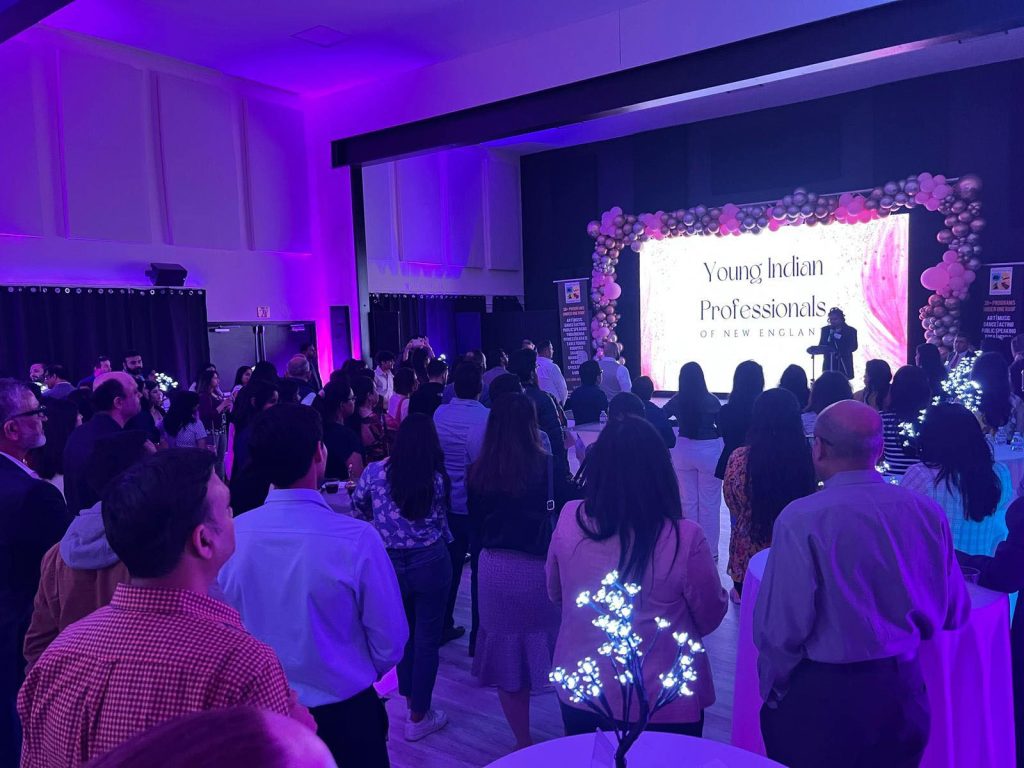

YIPNE’s event which drew over 400 young Indian professionals of New England
It started when…
Transitioning from student life to professional life, Neeharika felt lost and did not know how to navigate the real world. Owing to her extraordinary academic excellence she had graduated earlier than her peers. Although she was extensively involved with the Indian community, she wanted to diversify her network beyond that, adding a professional angle to it.
She came across a few networking organisations within her field and in the non-Indian groups in the Boston area, as well as community and charity organisations for the Indian community, there weren’t any that catered to the need of professional networking for the youth of the Indian community in the New England area. “As an American-born Indian, it was important for me to stay in touch with my culture and network with other young professionals at the same time,” she remarks.
It was during a conversation with her mother about the lack of Indian professional networking in the New England area, that the idea of YIPNE struck. “After the conversation I had with my mother, the urge for such a platform got stronger. Immediately after that, I created a logo, and launched Young Indian Professionals of New England on Facebook in April 2022” she says. Neeharika never imagined that it would grow so swiftly. Initially, she thought even if just 10 people joined, she would make at least 10 new acquaintances, and consider it a successful initiative.
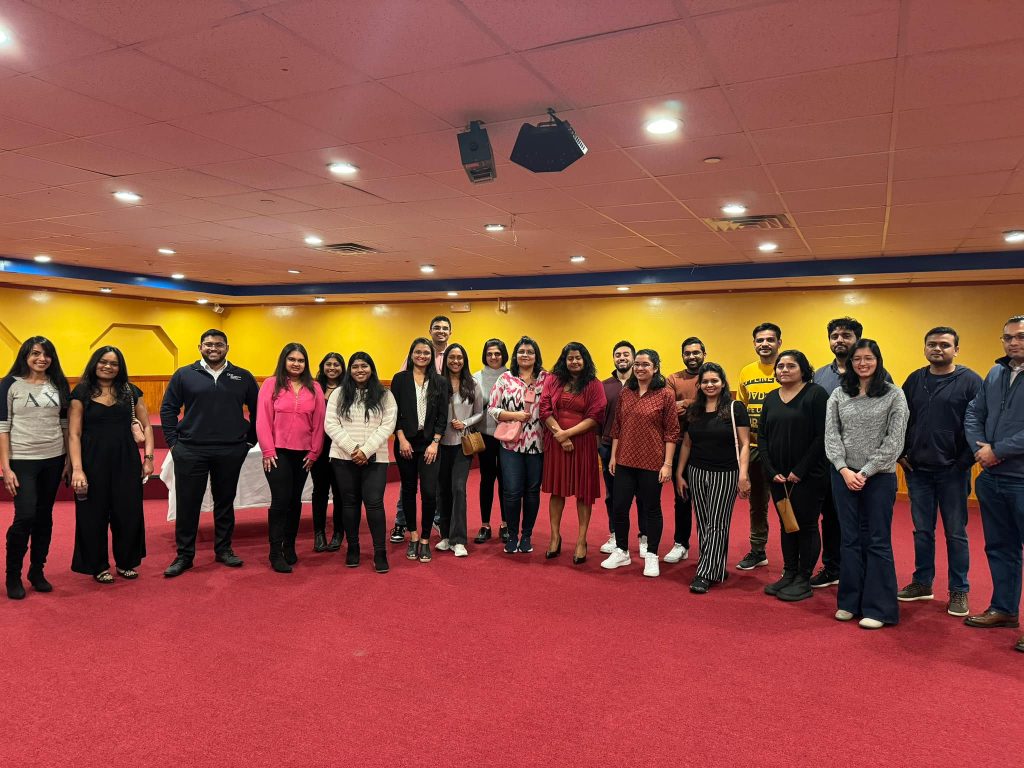

Neeharika Munjal and young professionals at the recent Holi Networking Brunch
Love for the community
Born and raised in Andover, Massachusetts, Neeharika had always actively sought opportunities to connect with others of her heritage. During high school, she became involved with an organisation called Ekal Vidyalaya USA, dedicated to providing education to remote villages in India. As an Ekal Youth Leader, she led fundraising efforts and organised events, even contributing her own pocket money to provide lifelong education to children. “We often take education for granted, viewing it as an obligation, but in reality, there are children worldwide who long for an education but lack the means to access it,” she remarks.
Neeharika is also associated with We Care Charity which helps people in need with compassion in the New England region and beyond and is a part of TiE Boston, a non-profit network dedicated to helping startups grow. As part of Saheli Boston, she works for the sufferers of domestic violence.
Health and management
When it was time for higher studies Neeharika chose to pursue health sciences with a minor in business administration and management at Boston University combining her interest in healthcare and business management. At the hospital where she works, she prioritises community engagement, striving to celebrate diverse cultures and enhance patient care. As part of the DEI (diversity, equity and inclusion) board, she emphasises the importance of understanding different cultural backgrounds to provide the best patient care for improved treatment outcomes.
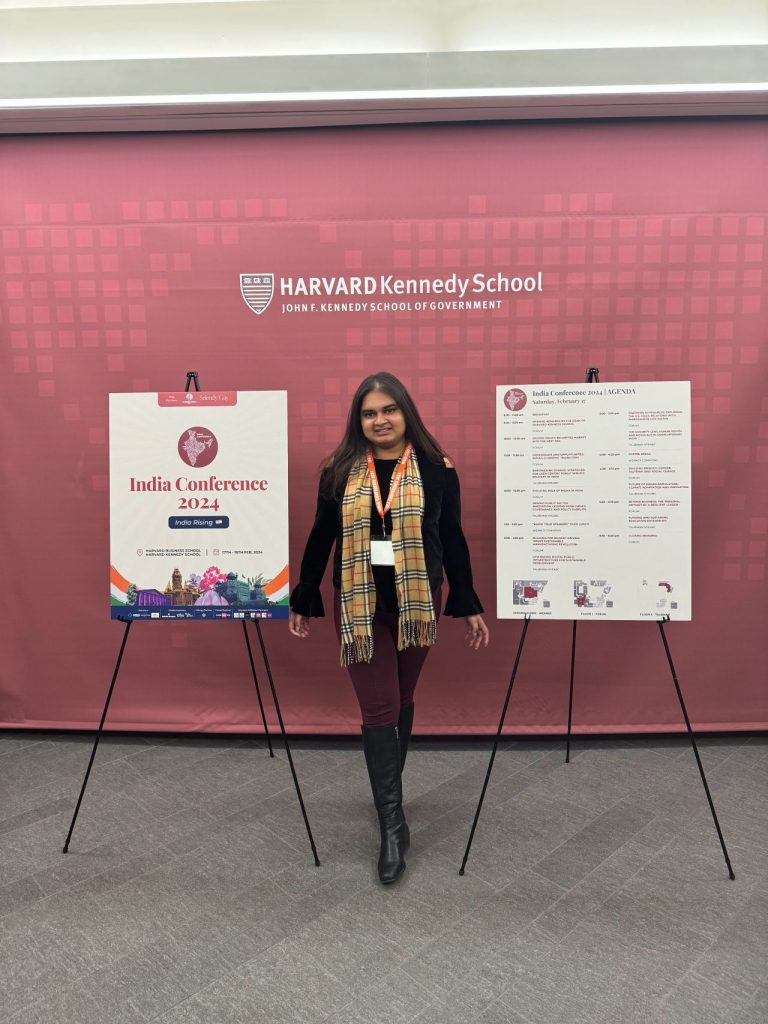

Neeharika Munjal at the Harvard Conference
“Balancing my full-time job, running my own organisation, and staying active in the Indian community of New England gets hectic at times but by organising my day effectively and focusing on what matters most to me, I have learned to multitask,” the youngster remarks stressing on the importance of effective time management.
Awards and recognitions
For her community initiatives, the youngster has received numerous awards, including the Lokvani Magazine Rising Star of the Year award, the Miss Bharat Woman Empowerment award, the Indian Medical Association of New England Presidential Recognition award, and also a recognition from Ekal Vidyalaya.
In 2016 she was named in the India New England 20 under 20 list, and has been appointed as a youth brand ambassador for Mydream Entertainment’s Miss Bharat New England.


Neeharika Munjal
Health and community
While she was studying at Boston University, Neeharika was part of the Partners in Healthcare club, Boston University India Club, and the Healthcare Improvement Inc, BU’s multidisciplinary student organisation dedicated to serving at the intersection of community service, clinical care, and healthcare reform.
Now as a healthcare professional, she is a member of the Healthcare Businesswomen of America Boston Chapter, a global non-profit focused on achieving gender parity in healthcare leadership, promoting career connections, and supporting the development of young professionals through groups like Tomorrow’s Executive.
Second anniversary of YIPNE
“As an American-born Indian, it was important for me to find ways to stay in touch with our Indian culture,” says Neeharika. “I am so grateful and blessed to have the community’s support. The older generation here in the US have provided a foundation for the Indian community but it is up to us – the younger generation to improve and elevate our community,” she shares.
Neeharika’s parents Preeti and Manoj Munjal had moved to the US for their higher education in engineering and are now into commercial real estate and investing. “They are active members of the Indian community in Boston and have worked incredibly hard to reach where they are today. They have been extremely supportive of me. I am always thankful and grateful to them,” she remarks.
“Next month, we are hosting our second anniversary networking gala brunch event at the Treasury Restaurant in Burlington MA. This will be a high-end networking event filled with accomplished individuals along with elevated fusion Indian food,” she shares excitedly.” I cannot wait to see what we accomplish in the future and want to celebrate what we have accomplished so far,” she signs off.
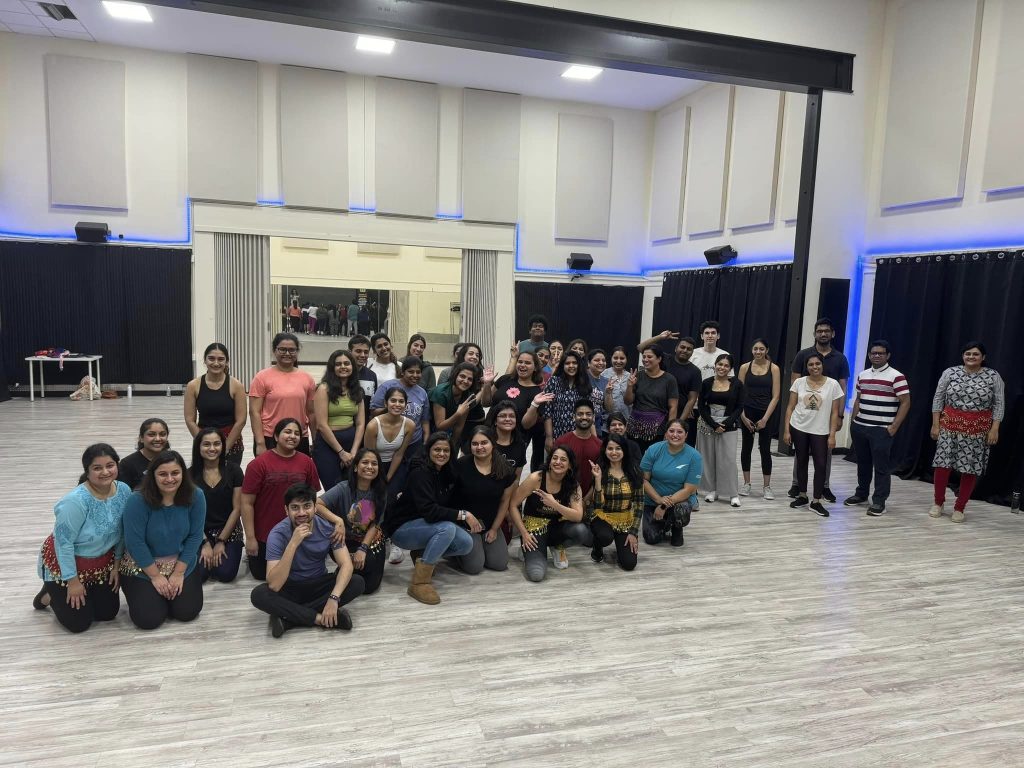

Young professionals at an YIPNE event




